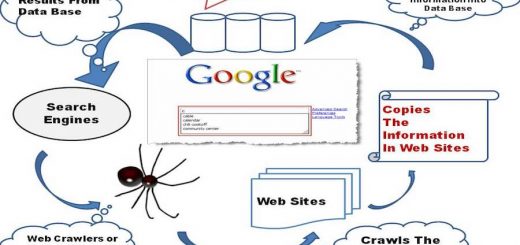10 SEO Tips
Here are a few basic tips on implementing SEO tactics with your web developer.
1. Keep it Simple
You do not need to use multiple versions of every keyword all in the first page of your website. Do not stuff meaningless words or spend too much time on archaic metatags. SEO pros agree that these tags are not as important as they once were. Just use a few obvious keywords or phrases and concentrate more on your page titles.
2. Name Images, and Use Alt Tags Effectively
By simply adding alt tags to your images and naming them strategically, the search engines will index them accordingly. For example, instead of naming an image “bluelogo.jpg”, name it “YourCompany_Logo.jpg” and attach an Alt tag such as your company name or keyword.
3. Keep Your Site Fresh
Update your site as frequently as possible. Each time you update your site, the search engine spiders will crawl back to it. This will also give incentive to visitors to keep checking back, giving you more traffic and bumping you up in search engine rankings.
4. Site Map
Large sites should always include a site map, which should be accessible from every page. This will help the search engine robots find every page within two clicks.
5. Blogs, Press Releases, Newsletters
Drive traffic to your site through multiple outlets. Anything that has your URL available will increase the amount of clicks you will receive and how often you appear in search results, and news updates are among the easiest and most cost effective ways to do that.
6. Avoid Flash
These days, some search engines are able to pick up Flash code, but it is highly recommended to stick with traditional HTML or similar code for search engine readability. A flash site or intro page could get in the way of a robot search.
7. Submit to Search Engines Yourself
You don’t need to pay a service for submission. Likely, you could end up spending a lot of money just to be penalized or banned. Choose a few of the most popular sites to submit to and only do so once.
8. Crosslink
Use keywords as anchor text to link to other pages within your site. This is useful for sites that contain many pages. The more keywords that link to a specific page the better.
9. Validate Your Code
Ensure that you do not have broken links or images by using a tool, such as the WC3 validator. It is also recommended to use a program, such as Jayde, to check relevant keywords. These programs will show you how search engine spiders may see the website.
10. Relevant and Multiple Domain Names
Make sure that your domain name properly stands for who you are. It is best to have a domain specific to your company name or what you do. When search engine visitors search for “consultants” and you’re a consulting firm, it should be part of your URL. For example, if your company name is ABC Consultants, but your domain name is www.denver-abc.com, when a user types “consultants” you likely won’t pop up. The more domain names you have, and the more specific they are, the better chance you’ll be within the first few pages of a search.
Source: www.resourcenation.com


